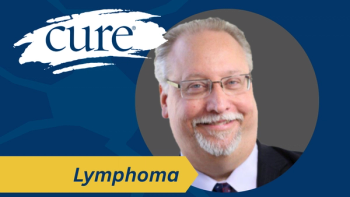
- Winter 2011
- Volume 10
- Issue 4
It's Only the Good Cancer If You're Cured
Although called a "good" cancer, Hodgkin lymphoma isn't always curable.
There’s nothing good about HL for Alison Humphries, whose 22-year-old daughter Adrienne Boardman died of the disease in 2009. Indeed, although 85 to 90 percent of patients with HL are cured, about 1,300 people die from the disease each year. “Everybody thinks they’ll be on the good side of that [number],” says Humphries. “But young people die of this disease, and I think it’s important to keep a spotlight on that fact.”
Boardman, who had HL for 13 years after her initial 3A diagnosis, wasn’t able to participate in the Adcetris trials because she didn’t meet the criteria.
Being told she had the good type of cancer always made Boardman very angry, says Humphries. “That was true for every patient I ever met,” she says. “It minimizes what they go through.” HL patient Stephen Dickter shares that sentiment. “When you’re going through the pain and the trauma, there’s part of you that thinks, ‘Am I supposed to be tougher than this?’” says Dickter, who was congratulated on having the “good” cancer by a recovery room nurse after a painful surgical biopsy.
Oncologist Stephen Ansell, MD, PhD, recommends that healthcare professionals avoid this phrase when communicating with patients. “There is no such thing as ‘good’ cancer,” Ansell says. “Four out of five HL patients do well with treatment, but 20 percent relapse, and many of these patients die.”
For the minority of HL patients who are not cured, Dickter recommends reaching out to others in the same situation. “People are lost,” he says, “and it’s through our contact with others that we start to find answers.”
Articles in this issue
about 14 years ago
Tips to Manage Dental Issues During Cancer Therapyabout 14 years ago
Resources to Ease the Financial Burden of Cancerabout 14 years ago
What’s Next for My Life?about 14 years ago
From Our Archives: Tissue Bankingabout 14 years ago
Respite Care for Caregiversabout 14 years ago
Brighter Horizons for Hodgkin Lymphoma Patientsabout 14 years ago
Medical Debt: An Unspoken Side Effect of Cancer Careabout 14 years ago
Eat Gingerly for Your Healthabout 14 years ago
Why Banks Need Your Tissue for Research



